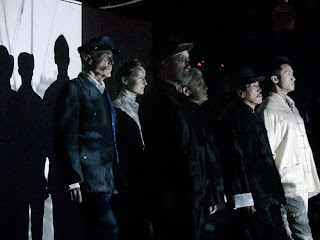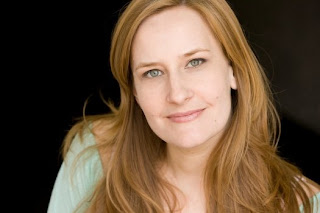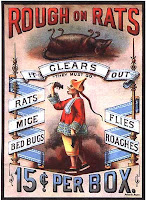Opening night I woke up anxiously at 9AM and after dispatching Matt and crew members to transport the stage and tech from the warehouse, I went on a hunt for a nearby bank, where I discovered to my chagrin that the check still hadn't cleared. I took out what I could, figuring I would give everyone part of their per diem, since the check absolutely HAD to clear by the next day.
The actors who were staying in the hostel started to trickle in blearily at around 10AM. Carl and Max both took advantage of all-you-can-eat pancakes for $1. William conversed in Spanish with the Mexican ladies who made the eggs and the pancakes, expertly flipping them with one practiced twist of the wrist. The coffee was surprisingly good. Or maybe I was just tired. Jojo unexpectedly showed up from the Equity lodgings in Chinatown. He had woken up at 7:30 and gone exploring, discovering a dim sum hole-in-the-wall that he liked. We sat around in the lounge area, despite one hostile hostel dweller who had staked out a portion of the sofa and refused to budge.
 |
| Morning meeting with tired actors. |
After making some announcements (most notably about the dressing room, which I was worried about) and reiterating that we were to meet at 5PM at
Chinatown Restaurant, I left the cast and went to convene with Richard about video and sound. I was a little envious of cast members discussing where they would go - the Mission or to Golden Gate Park or Fisherman's Wharf. Richard and I went through all the video cues and the sound cues again. Then Matt came back to the hostel with Erich the sound technician, having packed up sets and lights in a truck rented by Ernie from
Somarts.
Erich, I discovered, came from three generations of carnies. His family operated a carnival that toured Puerto Rico and the Dominican Republic. I shared with him my experience working at the
Coney Island Sideshows by the Seashore and
Big Apple Circus and we swapped stories about cracked-out carnival ride operators on our way to buy more cable at the
Guitar Store.
At Portsmouth Square, I immediately made a beeline to the
Portsmouth Square Garage to get adaptors from
Peter Lee that would turn 220 outlets into 110. I also tentatively asked him if we could use a corner of his space for a dressing room area since I had no idea where the cast might get changed. He told me that the garage was happy to help the production and showed me the garage lunchroom, which he said could be used as a dressing room if I liked. It was incredibly generous of him, but the place seemed a little cramped and I was worried about unhappy actors so I started to think where else I could set up a dressing room.
Emerging from the underground garage, I discovered that the truck had arrived and the stage was being set up. The old Chinese people who were playing xiang qi (possibly for decades) weren't about to be uprooted. Except for a half dozen openly curious guys, they stayed precisely where they were, ignoring the 2x4s and scaffolding that whizzed by their heads.
 |
| The Chinese community in Portsmouth Square. |
 |
| Ernie & Cristian setting up the stage. |
I gave the adaptors to Matt and then ran off to settle things at
Hotel North Beach, where the Equity actors were staying, after which I paid a visit to the
Chinese Cultural Center (CCC).
Mabel Teng, the director of the CCC, was there and when I asked her if there might be chairs we could borrow, she said no but she told me I might ask
Chinese for Affirmative Action (CAA). So I went across the Square to the CAA and not only did
Susan Mooney have no problem with me borrowing the 30 chairs they had, but she also said it would be okay for us to use their community center for a dressing room. Their community center was right behind the stage and absolutely perfect. (Their building is that low red one in the picture above.) I couldn't thank her more.
Hansel helped move the chairs to the Square - they were metal and pretty darn heavy (but heck, they were free!) - and I split to go hunting for props and costumes. After buying a pair of shoes for him and searching Chinatown for a baby, a yellow sweater and a stool to no avail (gotta love the random shopping lists you get in a production), I went to the
Chinatown Restaurant to meet the cast.
Anna Quan, the doyenne of the restaurant, pulled out all the stops. I especially enjoyed the dried tofu with string beans and fermented black beans, but the other more American dishes were also very good.
 |
| Cast chowing down at Chinatown Restaurant. |
Everyone was eating happily when halfway through the meal, Matt got a text that the electricity in the Square had suddenly shut off. Richard and Robin, who were still working, were frantically trying to ascertain what had happened. Matt and I left the feast and told the crew to come eat, since there was nothing they could do until electricity was restored. I called the Parks Department and got the lighting rental company by mistake. I called again and this time got a confused park official. In the meantime, Matt had found Peter Lee from the garage, who thankfully hadn't left yet for his vacation. (Yes, he was actually heading off to the East Coast.) He showed us the breaker in the slop closet and reset it. Electricity resumed but it was a sweaty twenty minutes. At least the crew got to eat.
I settled the cast into the CAA community center where there was a lengthy search for costumes and props among the five bags that we had. It turned out that unbeknownst to me, there was a SIXTH bag and it was still in the baggage storage at the hostel. Matt had to go fetch it. (Note to self: next time get ONE big-assed bag for all props and costumes.) The crew was still scrambling to set lights and video but it was already 7:40 and the cast was antsy to begin. I climbed over the fence to Portsmouth Square and was surprised to see that it was entirely full. There must have been nearly 100 people there. The seats were all taken and people were sitting on the sides and standing in a loose semi-circle all around.
Genny Lim and
Buck Gee were there, as were Matt's family and about a dozen students from Berkeley.
 |
| Buck Gee speaks about Angel Island. |
At around 7:50, the crew seemed to finally be ready and
Buck Gee went up to talk about Angel Island. I breathed a sigh of relief; the show was about to begin. Okay we were about 20 minutes late, but it wasn't so bad, everyone was excited, all was well. Then Kate comes running and asks me where my iphone is. "Why do you need my iphone?" I ask. It turned out that for some reason, there was no music. I ran back to the community center to get the phone and handed it to the sound technician while the rest of the cast was in places. By then, I was like an overstretched rubber band.
 |
| The ensemble in the prologue. I am offstage dealing with sound. |
I was a little upset over the lack of music in the prologue but when the play began, there was a new onus to focus on. A red-faced Chinese drunk in the first row was loudly responding to everything on stage. It was really hard not to be distracted. "Why are your hands trembling?" the Inspector asked. "Because it's cold!" the drunk retorted. At one point, an audience member picked up the drunk's half-empty pint of rum and holding it like a carrot on a stick, he coerced the drunk to go sit on the bench stage right. But after a scene on the sidelines, the drunk went back into the audience and resumed talking. Three-quarters of the way through the play, he literally careened over, knocking over two or three chairs. Matt said that he raised his arm and the weight of it made him pitch to the left.
 |
| Jojo Gonzalez, Carl Li, Hansel Lum, Ming Lee. |
 |
| Mei Lai and her baby, which is actually a cushion since I couldn't find a doll. |
But we made it through the performance and everyone said they enjoyed it. It certainly was several shows in one what with the drunk and with Toisanese ladies talking throughout. We struck lights and sound into Cristian's van and had some well-deserved drinks at the
Buddha Bar nearby.
 |
| Jojo Gonzalez & Kitty Chen framed by the San Francisco skyline. |

















































